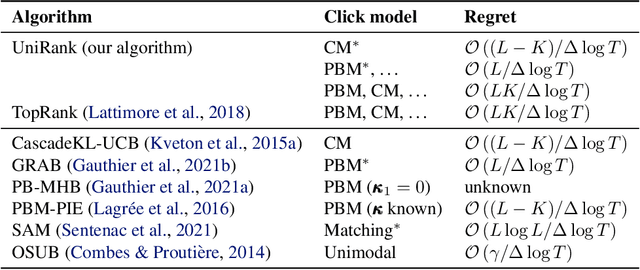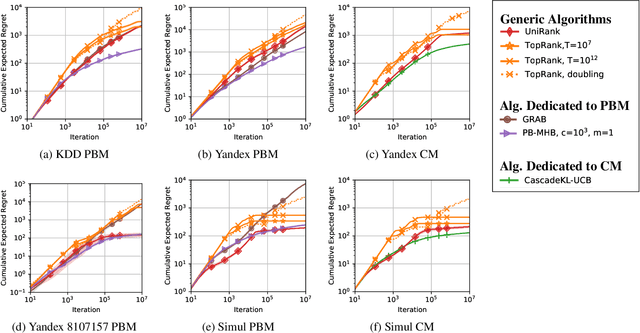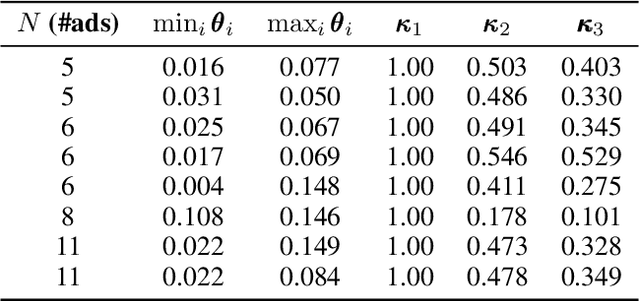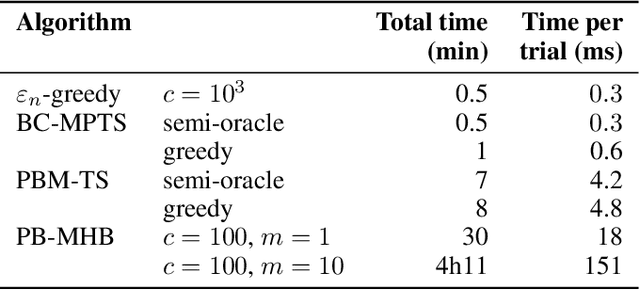Camille-Sovanneary Gauthier
LACODAM
UniRank: Unimodal Bandit Algorithm for Online Ranking
Aug 02, 2022



Abstract:We tackle a new emerging problem, which is finding an optimal monopartite matching in a weighted graph. The semi-bandit version, where a full matching is sampled at each iteration, has been addressed by \cite{ADMA}, creating an algorithm with an expected regret matching $O(\frac{L\log(L)}{\Delta}\log(T))$ with $2L$ players, $T$ iterations and a minimum reward gap $\Delta$. We reduce this bound in two steps. First, as in \cite{GRAB} and \cite{UniRank} we use the unimodality property of the expected reward on the appropriate graph to design an algorithm with a regret in $O(L\frac{1}{\Delta}\log(T))$. Secondly, we show that by moving the focus towards the main question `\emph{Is user $i$ better than user $j$?}' this regret becomes $O(L\frac{\Delta}{\tilde{\Delta}^2}\log(T))$, where $\Tilde{\Delta} > \Delta$ derives from a better way of comparing users. Some experimental results finally show these theoretical results are corroborated in practice.
Position-Based Multiple-Play Bandits with Thompson Sampling
Sep 28, 2020



Abstract:Multiple-play bandits aim at displaying relevant items at relevant positions on a web page. We introduce a new bandit-based algorithm, PB-MHB, for online recommender systems which uses the Thompson sampling framework. This algorithm handles a display setting governed by the position-based model. Our sampling method does not require as input the probability of a user to look at a given position in the web page which is, in practice, very difficult to obtain. Experiments on simulated and real datasets show that our method, with fewer prior information, deliver better recommendations than state-of-the-art algorithms.
 Add to Chrome
Add to Chrome Add to Firefox
Add to Firefox Add to Edge
Add to Edge